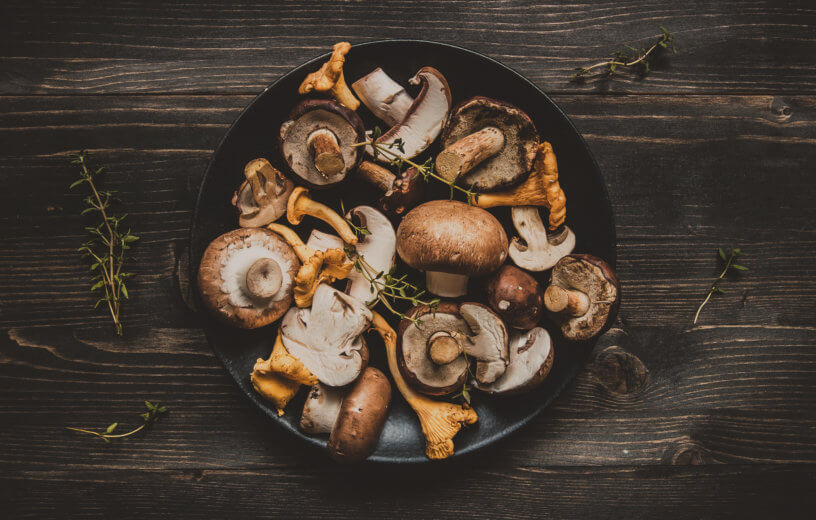SENDAI, Japan — Mushrooms are already widely used across Asia for both their nutritional and medicinal benefits. Now, a new long-term study conducted in Japan is suggesting that regular mushroom consumption can lower a man’s risk of developing prostate cancer.
Researchers from Tohoku University followed over 36,000 Japanese men for multiple decades to come to their conclusions.
Prostate cancer is one of the most common forms of cancer among men. In 2018 alone, there were 1.2 million new prostate cancer diagnoses. Generally speaking, as a man ages and grows older, his risk of prostate cancer increases.
“Test-tube studies and studies conducted on living organisms have shown that mushrooms have the potential to prevent prostate cancer,” explains study lead author Shu Zhang, an assistant professor of epidemiology at Tohoku University School of Public Health, in a release. “However, the relationship between mushroom consumption and incident prostate cancer in humans has never been investigated before.”
To the best of the researchers’ knowledge, their findings are the first ever to indicate that mushrooms have the potential to prevent prostate cancer at a population level. However, despite the fact that the study suggests eating mushrooms on a regular basis, Zhang was sure to mention that a balanced diet is still more important than cramming mushrooms into every single meal.
Two groups of men from different areas of Japan were tracked for the study; one group was from Ohsaki, and the other hailed from Miyagi. In total, 36,499 men were involved, all between the ages of 40-79 at the beginning of the observation period. The Miyagi group were tracked from June 1,1990 to December 31, 2014 (24.5 years), while the Ohsaki group was tracked from January 1, 1995 to March 31, 2008 (13.25 years). Each man was initially asked to fill out a questionnaire about their lifestyle choices, mushroom consumption and other dietary decisions, physical activity, drug or alcohol use, and provide information on their education, medical, and family history.
The long-term follow-up period revealed that men who ate mushrooms regularly reduced their risk of developing prostate cancer. This was especially true for men over the age of 50, and among men whose diets largely consisted of meat and dairy products along with limited consumption of fruits or vegetables. However, after performing a statistical analysis of the data, researchers concluded that regular mushroom consumption was linked to a lower prostate cancer risk regardless of other dietary choices.
Among all studied men, 3.3% actually developed prostate cancer during the followup period, and men who ate mushrooms just once or twice per week had an 8% lower prostate cancer risk compared to men who ate mushrooms less than once per week. Those who ate mushrooms three or more times per week enjoyed a 17% lower risk than men who ate did so less than once per week.
“Mushrooms are a good source of vitamins, minerals and antioxidants, especially L-ergothioneine” — which is believed to mitigate against oxidative stress, a cellular imbalance resulting from poor diet and lifestyle choices and exposure to environmental toxins that can lead to chronic inflammation that is responsible for chronic diseases such as cancer,” explains Zhang.
While Zhang and his team are confident in their findings, they nonetheless recommend additional research on the matter consisting of different population samples outside of Japan in order to confirm the relationship between mushrooms and prostate cancer.
“Considering the average American consumes less than 5 grams of mushrooms per day, which is lower than that consumed by the participants in this study (7.6 g/day) one would expect that even a small increase in mushroom consumption to offer potential health benefits,” Zhang comments.
The study is published in the International Journal of Cancer.
